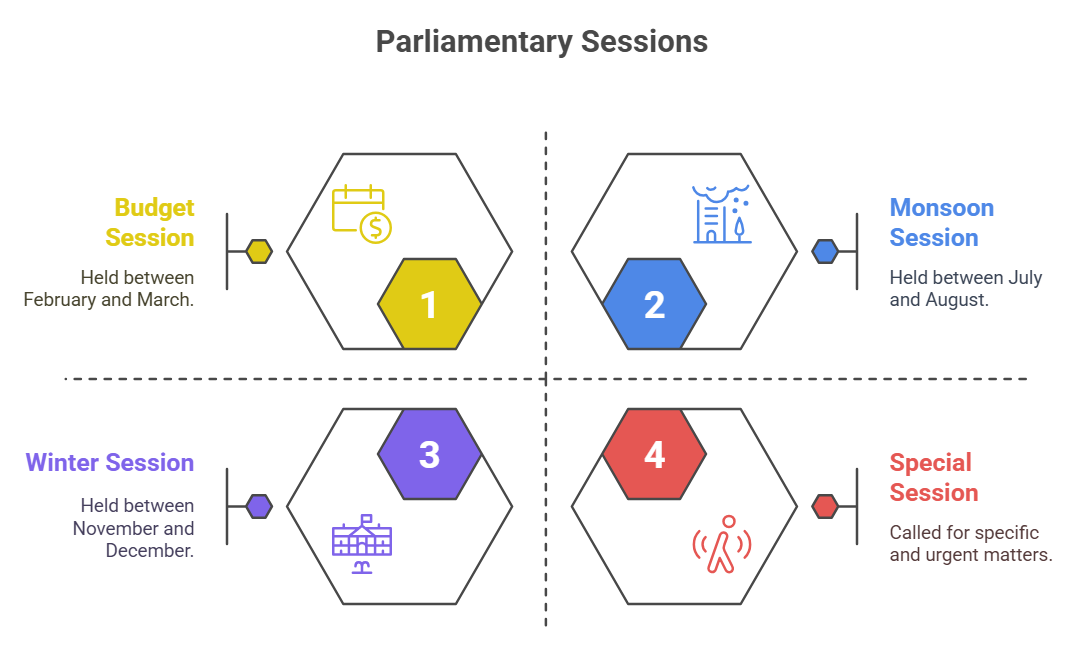03-Jul-2025
Sessions Of The Parliament
Indian Polity
Why in News?
Union Parliamentary Affairs Minister Kiren Rijiju announced on Tuesday that the Monsoon Session of Parliament will begin on July 21 and continue until August 12.
Sessions of Parliament
- Article 85 empowers the President to summon Parliament; gap between two sessions cannot exceed 6 months.
- The President can also prorogue a House or dissolve Lok Sabha (Article 85(2)).
- Sessions are regulated by the Indian Constitution and Rules of Procedure of both Houses.
- Minimum 3 sessions/year by convention but not mentioned in the Constitution.
Types of Sessions
- Budget Session (Feb–March)
- Longest and most important session.
- It begins with the President’s address.
- Focus: Union Budget presentation, debates, approvals and policy discussions.
- Includes recess for Committee scrutiny of the budget.
- Monsoon Session (July–August)
- Named after the monsoon season.
- Focus: Introduction and passage of bills, and debates on national issues.
- Enables opposition to raise concerns and seek government responses.
- Winter Session (Nov–Dec)
- Last session of the year.
- Focus: Review of government policies, performance and pending legislations.
- MPs raise questions, submit motions and examine bills.
- Special Session
- The term ‘Special Session’ is not explicitly stated in the Constitution or House rules, but Article 352 mentions a special sitting during a Proclamation of Emergency.
- Example
- 1962: India-China War
- 1971: India-Pakistan conflict
- 2023: Shift to new Parliament building.
Preparing Through MCQ
Q. Which of the following Articles of the Indian Constitution empowers the President to summon, prorogue, and dissolve the Houses of Parliament?
(1) Article 80
(2) Article 85
(3) Article 368
(4) Article 123
Answer: (2) Article 85

